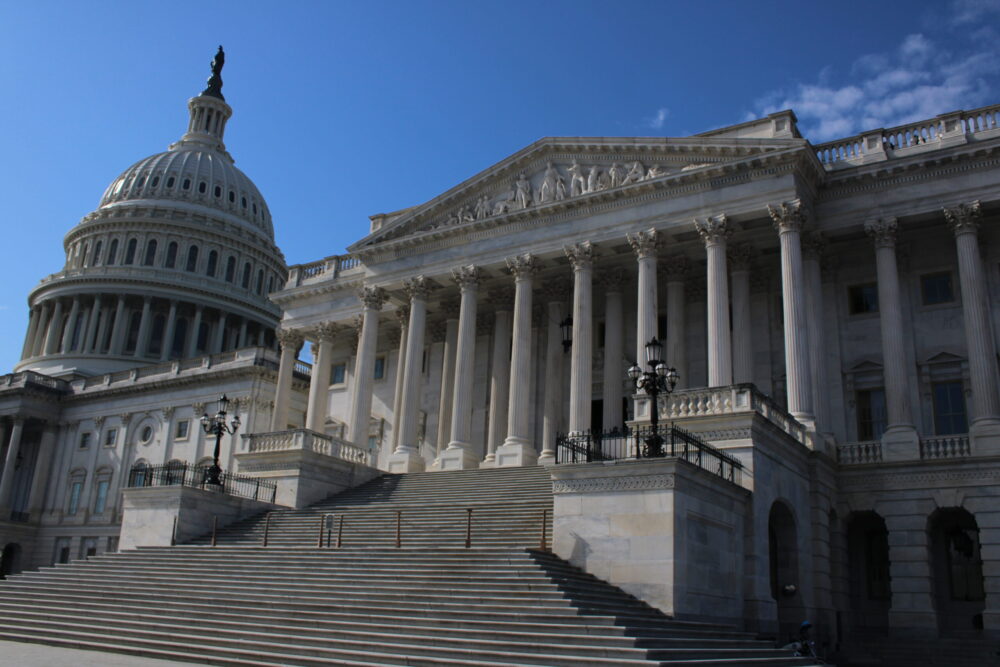WASHINGTON – The worsening retirement crisis impacting senior citizens will overtake current workers down the line if not fixed, experts say.
“The data clearly shows most Americans will not have enough money for a financially secure retirement and they are worried about it,” Dan Doonan, executive director of the National Institute of Retirement Security, told the Senate Health, Education, Labor and Pensions Committee Wednesday.
Thirty-eight percent of middle-income and 71% of low-income households are at risk of not being able to maintain their same lifestyle after retirement, according to 2023 research from a Boston College study based on the National Retirement Risk Index.
Sen. Bernie Sanders, I-Vermont, and chairman of the panel, said that about 45% of senior citizens do not have any retirement savings. This leaves millions of senior citizens frightened about how they’ll be able to live out their post-work lives, he said.
“One out of every four senior citizens in America is trying to live on an income of less than $15,000 a year,” Sanders said. “Think about that. While over half of our nation’s seniors are trying to survive on an income of less than $30,000 a year. Just put yourself in the place of that person.”
Sanders said that the United States now not only has one of the highest childhood poverty rates but also the highest senior poverty rate of any developed nation.
Nearly 23% of citizens above age 65 in the United States are living in poverty, according to data from the Organisation for Economic Cooperation and Development (OECD), a 62-year-old international public policy institution based in Paris. Other wealthy nations, like France and Denmark, have senior poverty rates just above 4%.
“I would hope that we would agree that that is simply unacceptable,” Sanders said. “And that’s got to change.”
Sara Schambers, a United Auto Workers member who currently works at the Ford Motor Co.’s Livonia Transmission Plant in Michigan, told senators that she doesn’t have a pension, health care, or retirement security. Schambers has worked with the company for 17 years and is a fourth-generation auto worker.
Getting a job at Ford no longer ensures the American dream or stability that her mother and grandparents once had, she said.
“Ford was the American dream. If I worked hard, I’d be able to have a life after Ford Motor Company,” Schambers said. “But without a pension, without health care, we have people leaving these companies after 30 years with nothing more than a ‘have a nice day.’ And I hope the stock market doesn’t crash.”
Over time, many companies have phased out reliable pension plans due to costs, leaving their employees in a tough situation. While Schambers said she is proud of UAW’s recent successful strike, she said she believes that there’s still a lot to make up for the benefits workers have lost over the years.
“I am proud of the accomplishments that we’ve made after 15 years of falling behind after the financial crisis,” Schambers said. “But we still fell short of what generations of auto workers had. We still fell short of what the American dream should be.”
Teresa Ghilarducci, a professor of economics and policy analysis at the New School for Social Research in New York, said that looking at the average retirement wealth in the United States paints a misleading picture.
She noted that while people may think the average retirement wealth is high, the median retirement wealth for the bottom 90% has decreased.
“If Elon Musk walked on the witness stand today, we would be the richest, on average, witnesses of all time in the health committee,” Ghilarducci said. “But the typical retirement wealth for us would not go up for the typical American approaching retirement.”
Doonan acknowledged that the move away from pension plans and solely relying on 401k plans has helped create the retirement crisis. While a 401(k) allows employees to control their contributions, it does not guarantee a recurring check after retirement, he said.
Doonan said that pensions would better benefit workers, employers and the economy.
“Conventional wisdom suggests that 401(k)s cost less,” Doonan said. “But I think what I hear when that is said is it means putting less money into a less efficient system as costs rise and hoping for the best.”
Sen. Bob Casey, D-Pennsylvania, has introduced the 401Kids Savings Act, which would create savings accounts for children starting at birth. When a child turns 18, the funds could be used for future needs like getting a college degree and even retirement.
“It’s a really good plan,” Ghilarducci said. “We should start with wealth and accumulate it.”

